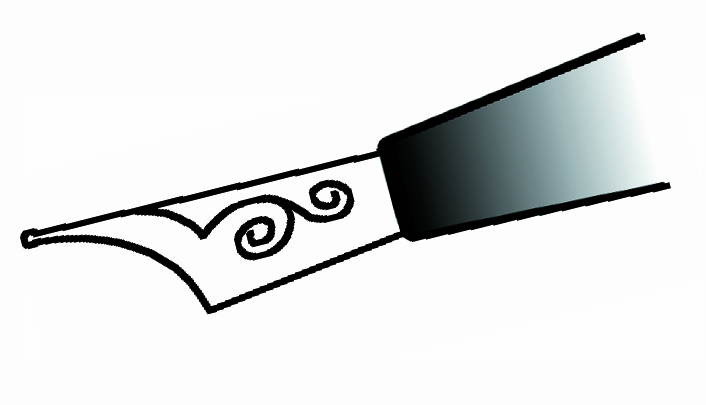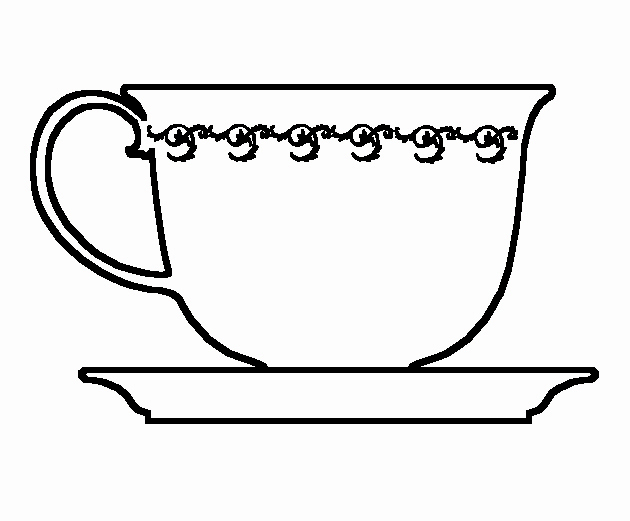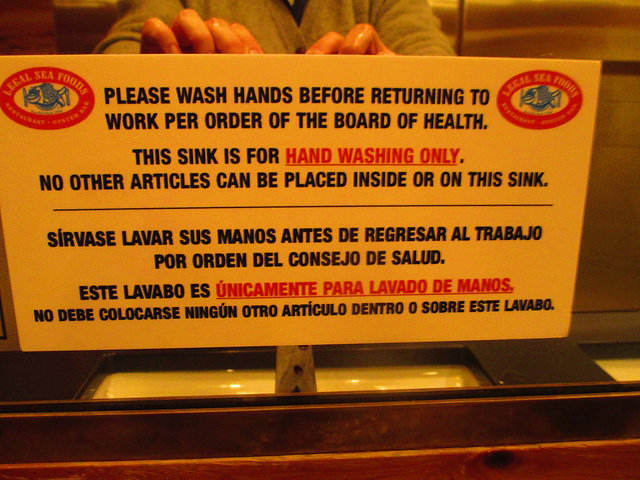The results are in, the votes tabulated, and different pairs of Victorious Pet Peeves will now compete in Round II! Etiquetteer was surprised, delighted, and disappointed with some of the results. Let's go through them division by division.
WEDDINGS
Unfortunately, Etiquetteer was not exactly surprised to see "Lack of information about time, directions, etc." win out over "No indication of dress code," 75% to 25%. Etiquetteer attributes this to two things: 1) too few people caring about what they wear in the first place - remember, the opposite of Formal is Informal, not Casual! - and 2) the growing number of wedding guests that need to get on a plane to attend. "Lack of information" will now face off with "Guests who don't R.s.v.p.", which beat out "Bridal registry information on the invitation" 79% to 21%. While Etiquetteer has certainly had to smoke out enough unresponsive guests, it seems an even greater offense to make an invoice of an invitation.
"Weddings as fund-raisers for the honeymoon" triumphed over "Cash bar for wedding guests who have traveled across the country," 69% to 31%. One can only direct the largesse of one's friends and family so much! Unsurprisingly, "Couples who do not send thank-you notes" won out over "Destination weddings," 63% to 37%. There are those who don't really consider destination weddings a pet peeve. Etiquetteer has to wonder if they are, in fact, brides. So few brides understand that their wedding just isn't as important to everyone else as it is to them. But having gone to the trouble of selecting a wedding gift and bringing or sending it, and perhaps even going to the expense of attending a wedding far away, and then not even the courtesy of a Lovely Note -- indeed, that's an offense! Let's see how that does against "Weddings as fund-raisers for the honeymoon" in Round II.
DRIVING AND TRAFFIC
"Drivers who ignore red lights" peeves readers much more than "Pedestrians texting while walking in traffic," 69% to 31%, though Etiquetteer confesses that he is more peeved by texting pedestrians. The gap was narrower in the next pair: "Drivers blocking bike lanes" overrode "Cyclists wearing earphones" 52% to 48%. So we'll have two driver pet peeves facing each other in Round II. One wonders if there weren't more pedestrians taking this survey . . .
Etiquetteer thinks that "Cell phone use while operating a vehicle" should have beat out "Double parking on narrow streets" by a larger margin. It was closer than Etiquetteer expected, 54% to 46%. Yes, double parking is annoying, but the former pet peeve is much more fatal in the long run. "Cell phone use" will face "Illegally parking in handicapped spaces" now, which triumphed over "Relying solely on GPS and getting lost" 73% to 27%. This does seem like an emotional vote. Depriving the handicapped of their convenient and legally protected parking is not just Perfectly Improper, it's Wicked. But Etiquetteer could shred road maps with his teeth in anxiety of the number of drivers who haven't the barest idea of where they're going until they get hopelessly lost - and then have to drive around in traffic using their cell phones.
TABLE MANNERS/DINING OUT
"Chewing with mouth open" - disgusting throughout the ages, much more so than "Check-splitting for more than four diners," 83% to 17%! Next week we'll see if it's more disgusting than "Texting at the table," which is definitely one of Etiquetteer's pet peeves. "Texting" beat out "Last minute cancellations" by a significant margin, 62% to 38%. One doesn't attend a dinner party to interact with people who are elsewhere. It's that simple!
"Diners who photograph their food" got off easy this time, as "Ill-mannered children and complacent parents" just destroyed them 82% to 11%. Photographing one's food is certainly a phenomenon of the Digital Age, but at least that's silent. Children have been shrieking and carrying on at dinner tables ever since the extinction of nannies.
But how well will those ill-mannered kids and their parents deal in the next round against "Cheap Tippers?" To Etiquetteer's surprise, "Cheap Tippers" came out the winner over "Slow service," 64% to 36%.
GENERAL PEEVES
It's probably a sign that our civilization is doing more online, but "Confusing customer service menus" garnered more votes than "Scratchy recorded music on call waiting," 80% to 20%. On the other hand, the former could apply to online transactions as well as the telephone. But the Big Communications Companies would go far to clean up their call waiting music. It's also a sign we're doing more online that "Door-to-door solicitors of any kind" won over "Being interrupted," 71% to 29%. Having to answer the doorbell certainly takes one away from the computer! But being interrupted is enormously aggravating. Sometimes the best way to deal is to stop communicating and give your Alleged Partner in Conversation a Blank Stare. When they notice, simply ask "May I continue?"
"Loud public cellphone conversations" easily bested "Visible undergarments," 85% to 14%. Etiquetteer, who is mighty tired of seeing bra straps and elastic waistbands, wished that had shown better in the polls.
Our final pair of pet peeves, "Insufficient deodorant" vs. "Oversufficient cologne," was the one Etiquetteer watched the most. For much of the voting, this pair was tied! The final result: "Insufficient deodorant" at 45% and "Oversufficient cologne" at 55%. Etiquetteer really thought it would go the other way. The solution is the same for both: bathe more. And here's some simple advice for those ladies and gentlemen who use scent. Your scent is supposed to attract others to you, but that's very difficult to do when it takes up all the air around you. Don't use enough that anyone can identify what it is. Your scent should be subtle and intriguing. Kidnapping with cologne will only get you under an oxygen tent.
Thanks for joining the fun! Now it's on to Round II here!















